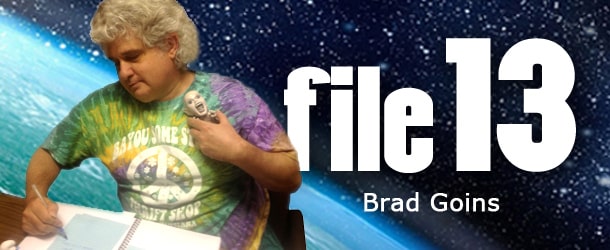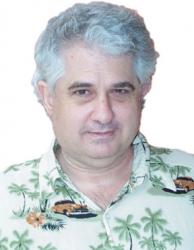I recently stopped reading a book titled Flames Over Tokyo on page 222. It wasn’t that the book was especially boring or anything of that sort. It was just that I figured I’d learned everything I’d ever need to know about incendiary bombing.
Having read those 222 pages, I can tell you a lot about the differences between an M-47 bomb and an M-69. But are you ever going to ask me about the differences?
I decided that unless I’m going to become a professor at West Point, I don’t need to know any more about incendiary bombing. So I let the last 100 pages of the book slide.
This is only worth mentioning because I know that there are some people who believe that to stop reading a book before one gets to the end is a horrible thing to do. This notion has always gotten my attention because I can’t think of a logical argument in support of it.
If I thought that if I stopped reading Flames Over Tokyo, the book would explode like an M-69 bomb and pose a hazard of burning down my neighborhood and destroying every living thing in it, I’d think twice before I discontinued my reading of it. But since I believe that if I stop reading, neither I nor anyone else will suffer any negative consequences whatsoever, I put down the book and switch over to automatic.
Some think that to stop reading a book that’s considered important or a classic or what have you is an especially diabolical sin. Again, I don’t see the argument in favor of the notion. I know The Master and Margarita by Mikhail Bulgakov is considered a great work of literature. I also know I’ve tried to read it three times and have stopped reading it three times. I conclude it’s not to my taste.
I make the decision to stop reading books fairly often — maybe half a dozen times a year. I don’t think this practice is based on any moral weakness. There’s no laziness involved in the process. I’ve worked mighty hard to read the entirety of some books whose reading gave me no great pleasure. Three that occur to me immediately are Bleak House by Charles Dickens, Middlemarch by George Eliot and Tom Jones by Henry Fielding.
I read Bleak House when I was very young and I thought that not reading it would just leave too big a gap in my education. The incredibly hard work of reading all the way to the end paid off because I saw Dickens using techniques for creating compelling narratives that were entirely new to me (and that I’ve never seen used as well anywhere since).
I read Middlemarch because a professor I respected a great deal told me I’d leave a huge gap in my education by leaving it unread. He was right. I don’t know of any other work of literature that speaks more profoundly of human experience, feeling and thought more often than Middlemarch.
Tom Jones was the only one of the three that disappointed me. Another Henry Fielding novel, Joseph Andrew, is funnier; has more to say about the human condition; and weighs in at less than half the length.
My most recent effort to drive myself through a book of this sort occurred with my off and on reading of Dickens’ 1,000-page novel Dombey and Son. Several things kept me coming back to the book after a hiatus. Dombey and his wife were such monsters that I couldn’t stop wondering just how they were going to destroy each other’s lives. And then the usual cavalcade of Dickensonian freaks was always waiting in the wings, and it was hard to resist the promise of a long succession of eccentricities and perversions described in loving detail. And of course, there was the always tempting sense of comfort and satisfaction that comes from escaping into a narrative that isn’t going to end any time soon.
Still, I feel pretty certain there are great books that I will never read and, furthermore, will never want to read. There are certain great writers whose prose I find it agonizing to read. Virginia Woolf is my favorite essayist. But I find the experience of reading her prose fiction agonizing and baffling. And it’s certainly not that I haven’t given it a fair shot. I simply never understand what she’s saying.
The same goes for the prose fiction of Henry James.
One reason I’m writing about this question of stopping in the midst of a book is that it relates to that hideous cliché “the bucket list.”
For me, the bucket list is the list of books I want to read in whatever time is left to me. There’s nowhere else I want to go; nothing else I want to do. I’m content with my lifetime music listening experience. I’ve gotten enough euphoria for several lifetimes from music. Now, all I want to do is read.
The majority of the books that make up my bucket list are books I’ve read at least once. These are books whose literary merit seemed to me to be exceptional. I want to read them at least one more time to make sure there wasn’t something mind-blowing that I missed.
And there are books that, if I have time, I will read even though I don’t imagine I’ll enjoy them. Consider the writers I mentioned above. Three times in my life, I’ve tried to read Virginia Woolf’s novel The Waves; three times I’ve given up. Yet, I do believe I’ll eventually read it from cover to cover — again, assuming I live long enough; let’s say, at least another decade.
And how about Henry James? I’m likewise determined to read his novel The Golden Bowl at some point before my demise. That one I’ve only given up on once. Over and over I read a sentence only to conclude, in exasperation, “I don’t know what he’s talking about. I’m not sure I can parse the sentence.” Still, I will eventually read the book.
These works, and a few other intimidating tomes, I’ll make sure to read for the usual reason — I don’t think my education would be as full as I want it to be if I went without reading them.
Just what my education is and what it’s supposed to do are vague things for me. I do have a sense of what I want my education to include. If, in my reading, I get the feeling that writers I respect think a book is extremely important to the development of literature, I’ll put it on my must-read list.
I’m glad that when I was younger and had more vim and vigor, I had both a broader and more precise sense of what my education should encompass. By the time I was out of high school, I’d already read so much art history I was pretty much set for life. I felt that if a work was universally considered a classic — The Iliad, The Inferno, King Lear — I was somehow obliged to read it. I think this approach, which may have been driven by nothing more than a strict super-ego, served me well.
I’m glad now that I felt that way about my education at one time. These days, my personal education proceeds in such a lackadaisical, unforeseeable way that I’m not sure it’s proceeding at all. Obvious gaps in my knowledge of military history, general history, philosophy and other subjects don’t seem to concern me in the least.
I have a hunch that this progression of an almost aimless type of education has something to do with aging. My default approach to almost everything at present seems to be “take it easy.”
It would be at least a little interesting if, in the end, education turned out to be a mysterious thing; if it turned out to be one more thing that people have thought up without thinking through. In the end, perhaps, it’s another thing that doesn’t give us quite as much as we expected it too. I find myself wondering just how few people will spend time in their last sickbed ticking off the things they’ve learned from their reading. In the end, what one has learned may count for less than a nice, soft, thick, warm blanket.















Comments are closed.